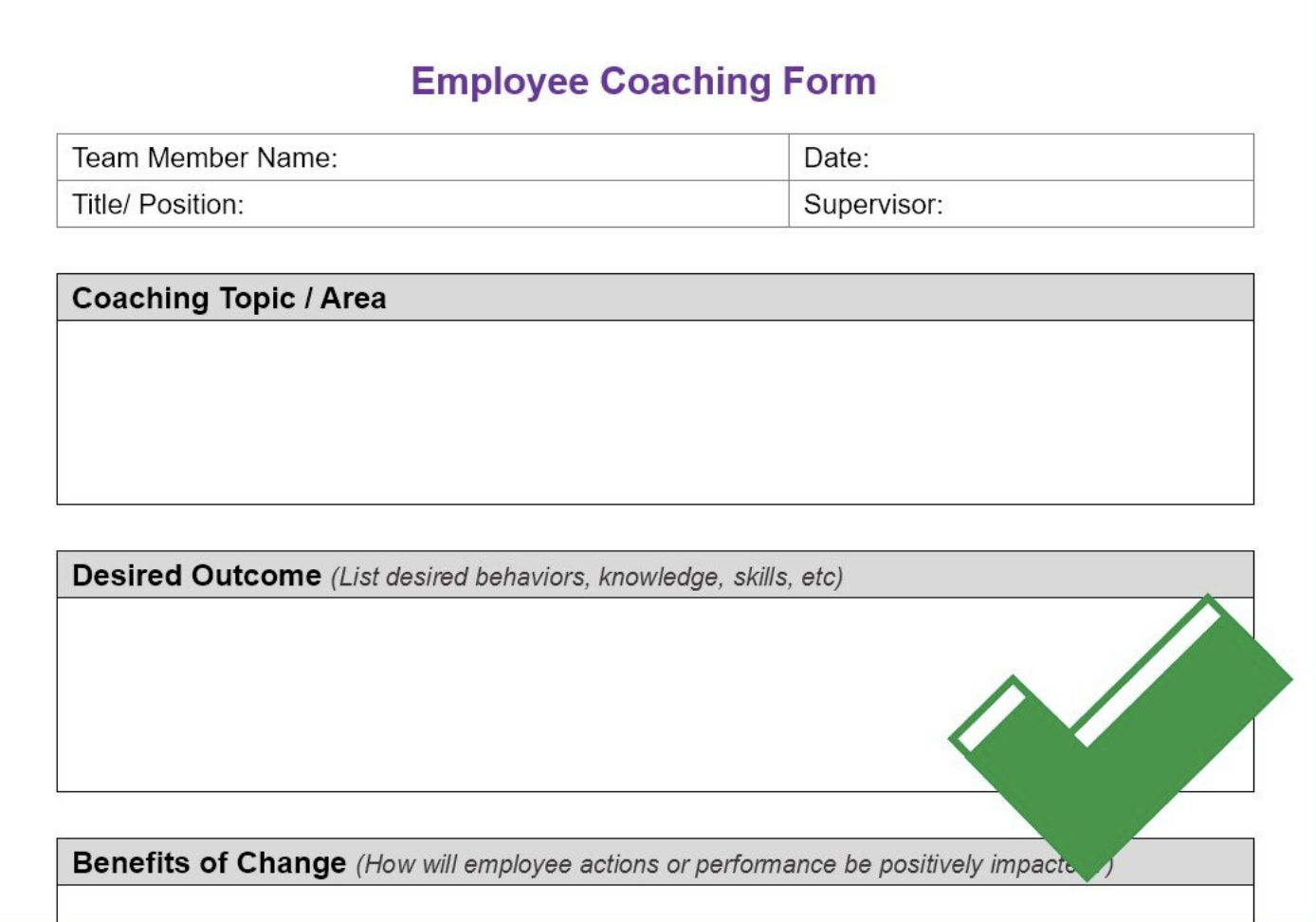Free Employee Coaching Template: Improve Employee Performance
Optimize team management in minutes with ManageBetter. Start your free trial now and join Uber and Microsoft in boosting performance, gathering insights, and generating reviews—all AI-powered, no writing required.
Coaching employees is an essential duty for managers and supervisors at all levels.
Employees benefit from constantly being encouraged and given guidance to reach their full potential. Coaching can take the form of conversations, quick tips and advice, and so on. Sometimes, a more involved coaching session is helpful in brainstorming how to help employees grow and improve.
Team ManageBetter has developed an employee coaching form template to help you run a concise and proactive coaching session.
Download the free template.
Above is a sample coaching scenario showing how to utilize the template.
Coaching Topic / Area
Briefly summarize what the employee is receiving coaching for.
It could be a soft skill that needs improvement, such as communicating with others. Or maybe the employee would benefit from training in a specific technical skill, like using an online analytics tool.
State why it is important for the employee to improve in this area.
Desired Outcome
Detail what is expected in the future or what the employee hopes to achieve through coaching or training.
Benefits of Change
It is not enough simply to state that there should be a change, there must be some incentive to do so.
Lay out the benefits that the employee gains by improving in a certain area.
Suppose they want to work on time management. By taking steps to better manage their time at work, the employee will be more productive and reduce stress caused by not finishing tasks on time.
Action Plan
List out actionable steps that the employee can take to work towards their goals.
This may include daily to-dos, formal trainings or continuing education, changes to routines, etc.
Timeline
Over what period of time is the employee expected to carry out their action plan and begin to see results?
As a manager, try to set up a time in the near future to follow up with the individual to discuss their progress or talk about any roadblocks they may be facing.
Sharpen Your Leadership Edge: Join 3,000+ executives receiving weekly, actionable insights from industry experts. Subscribe free to The Thoughtful Leader and elevate your team's performance.


